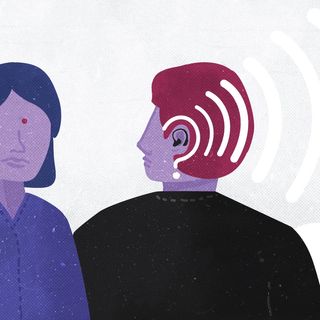The exact cause of polycystic ovary syndrome (PCOS) hasn’t been well researched to date, but a new study has now found daughters of women who have PCOS are five times more likely to inherit the condition compared to those born to women who don’t have PCOS.
Researchers also identified four alterations in genetic function present in both daughters of women who have PCOS as well as unrelated women with PCOS, helping to clarify a long-suspected hereditary genetic predisposition to the condition and raising the possibility of a screening test in the future.
PCOS is a hormonal disorder in which women of reproductive age may experience infrequent or prolonged menstrual periods or produce male hormones, known as androgens, in excess. This may cause them to develop excess body hair, acne, and even suffer from fertility problems.
Researchers of the current study, published in Nature Medicine, said when pregnant, women with PCOS have higher levels of the androgen hormone that increases the likelihood for their daughters to develop PCOS later in life.
They reached the above conclusion after studying both humans and mice. Scientists from Sweden-based Karolinska Institute studied 21 Chilean women whose mothers were diagnosed with PCOS and 14 women whose mothers didn’t have the condition. Of this group, 15 women were found to show symptoms of PCOS, whereas, of those whose mothers didn’t have PCOS, only one was diagnosed with the disorder.
In addition to this study group, scientists also analyzed data from 29,000 Swedish women, of which more than 2,000 women’s mothers had PCOS. The results showed that 3.4% of women whose mothers had PCOS were also later diagnosed with the disorder themselves — a rate roughly five times higher than the 0.6% diagnosis rate among women whose mothers didn’t have PCOS.
Related on The Swaddle:
PCOS: What It Is, What You Need To Know
“Our work shows that the daughters of women with PCOS have an increased risk of developing the disorder,” said the lead author of the study, Elisabet Stener-Victorin, to The Guardian. “This is an under-recognized condition. Many women out there have either diagnosed themselves or are not diagnosed and are not feeling good.”
To further study how this condition is inherited, researchers led animal studies wherein pregnant mice were given injections of testosterone, an androgen, in order to mimic PCOS in mothers. They found the resulting female pups displayed PCOS-like symptoms, which were passed on for up to three generations. Each generation showed the same, unique altered gene function as well.
One in five women in India have PCOS; globally, according to the World Health Organization, it is known to have affected about 2% to 26% women, and many women remain undiagnosed, per another study. Despite its prevalence, PCOS remains an underrecognized condition; for as many as one-third of women, it takes more than two years and consultations with at least three health professionals to establish a diagnosis for PCOS and start treatment.
Therefore, “if further work confirms the genes’ role in PCOS, they could potentially form the basis for a screening test in young women,” said Stener-Victorin to The Guardian. “It is very important for women with PCOS to be diagnosed and treated, if possible maybe lowering the androgen levels, because it may affect their future children and grandchildren.”




